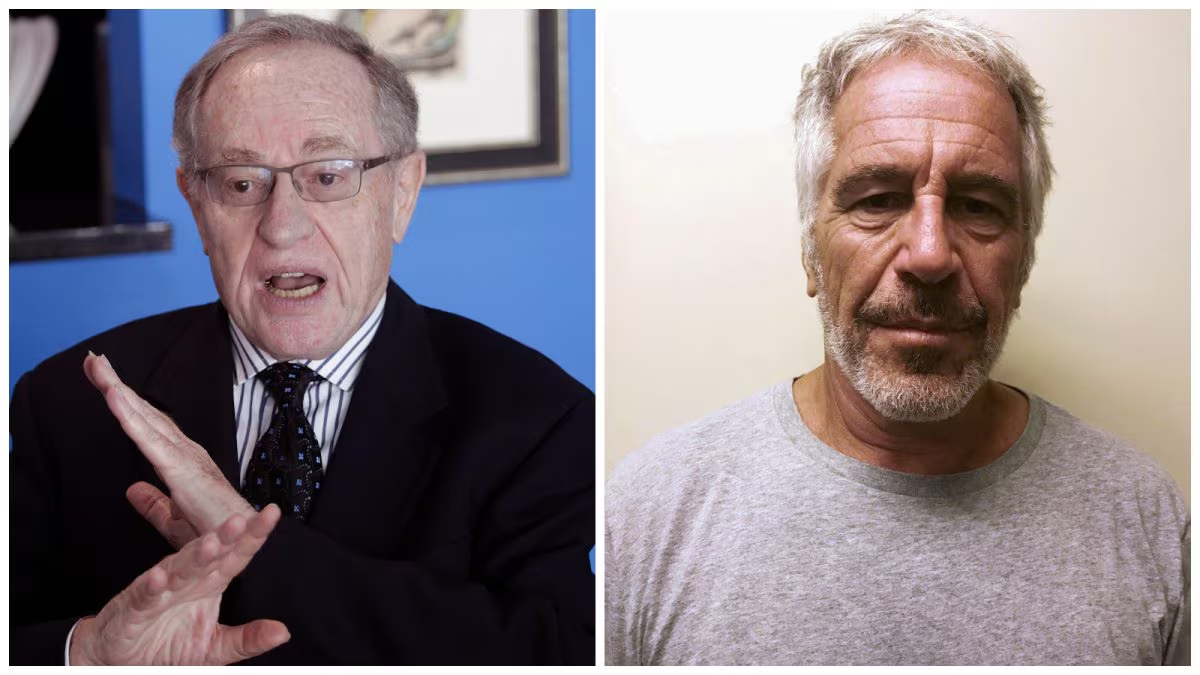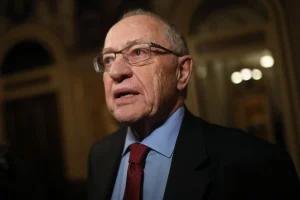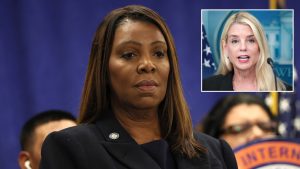Recently disclosed records from Jeffrey Epstein’s estate have reignited scrutiny in Washington, after they revealed that Epstein exchanged text messages with a Democratic member of Congress during Michael Cohen’s high-profile February 2019 testimony. The House Oversight Committee published the material this week, and major outlets — including The Washington Post and The Guardian — confirmed their authenticity.
While the documents do not establish wrongdoing, they show real-time communication between Epstein and the lawmaker in question, creating a wave of public interest and prompting renewed questions about the nature of the interaction. The lawmaker — widely identified through timestamp matching and hearing footage as Del. Stacey Plaskett (D-U.S. Virgin Islands) — has acknowledged receiving messages from Epstein, though her office says she received messages from “the public at large” during the hearing and that suggestions of impropriety are misguided.
Still, the disclosure marks one of the most unexpected twists in the long aftermath of the Epstein scandal.
A Surprise Revelation From Inside Epstein’s Digital Records
The documents originated after Epstein’s estate turned over electronic communications to investigators. Among them were text message logs from early 2019 — months before Epstein’s final arrest — capturing an active exchange between Epstein and the unnamed lawmaker on the morning of Cohen’s testimony.
Cohen, the former attorney to Donald Trump, appeared before the House Oversight Committee on February 27, 2019, alleging financial misconduct, racism, and participation in hush-money arrangements — claims Trump denied then and continues to deny.
As Cohen testified, Epstein appeared to be watching the hearing in real time.
In one message, Epstein wrote:
“Cohen brought up RONA – keeper of the secrets.”
The reference was to Rhona Graff, Trump’s longtime executive assistant, though Epstein misspelled her name. Moments later, the lawmaker — preparing to question Cohen — replied:
“RONA?? Quick I’m up next is that an acronym.”
Timestamps on the messages aligned precisely with the point in the broadcast when Cohen referenced Graff, according to The Washington Post.
Identifying the Lawmaker Behind the Messages
Although the text logs redact the lawmaker’s name, media outlets traced the timing and matched the messages to the moments Plaskett was seen preparing to speak on camera. Additional context strengthened that identification.
After the news broke, Plaskett’s office released a statement acknowledging she had, indeed, received messages from Epstein during the hearing — while insisting this was one of many incoming communications and not indicative of coordination:
“During the hearing, Congresswoman Plaskett received texts from staff, constituents and the public at large … including from Epstein,” her office said.
The statement added that she “welcomes information that helps her get at the truth” and pointed to her long record of opposing sexual abuse and human trafficking.
Plaskett did not personally address the messages’ substance, and her staff declined to elaborate.
Messages Before and During the Hearing Reveal Constant Communication
The documents include more than a dozen messages sent both before and during the hearing.
At 7:55 a.m., before proceedings began, Plaskett wrote Epstein:
“He’ll talk about his grades.”
Epstein responded minutes later:
“what privilege stands behind the none release of college transcripts?”
Throughout the morning, Epstein continued sending comments — some unrelated to the substance of the hearing:
-
At 10:02 a.m.: “Great outfit.”
-
At 10:22 a.m.: “You look great.”
-
After Plaskett appeared to be chewing something on camera, Epstein texted: “Are you chewing.”
Plaskett responded:
“Not any more. Chewing interior of my mouth. Bad habit from middle school.”
As the hearing progressed, Epstein also sent unsolicited suggestions about potential lines of questioning. At 12:25 p.m., he wrote:
“Hes opened the door to questions re who are the other henchmen at trump org.”
Plaskett responded:
“Yup. Very aware and waiting my turn.”
When Plaskett Questioned Cohen, the Timing Matched the Texts
At 2:28 p.m., when it was finally Plaskett’s turn to question Cohen, the exchange mirrored topics that Epstein had referenced only hours earlier.
She pressed Cohen for more names associated with the Trump Organization:
“You’ve got to quickly give us as many names as you can so we can get to them,” she said — after Epstein had suggested Cohen had “opened the door.”
She then pivoted to Rhona Graff:
“Is Ms. Rhona, what is Ms. Rhona’s—”
Cohen went on to describe Graff as Trump’s executive assistant, someone deeply familiar with the inner workings of the Trump Organization.
Whether Epstein’s earlier text directly influenced Plaskett’s line of questioning remains unknown. Nothing in the documents proves causation — only correlation in timing. Still, the overlap has fueled interest and debate in political and media circles.
Why the Messages Raise Questions — and Why Answers Are Still Limited
Jeffrey Epstein was a convicted sex offender long before 2019. Though his 2019 federal indictment came months after Cohen’s testimony, he had already been publicly associated with criminal sexual conduct since at least 2008. That a sitting member of Congress was texting him during a major oversight hearing has naturally drawn scrutiny.
However, legal experts caution that:
-
The documents do not show wrongdoing.
-
The texts alone do not prove any official coordination.
-
Lawmakers routinely receive messages from numerous sources during hearings.
-
Context about how frequently they communicated, and why, is still incomplete.
Plaskett’s office maintains she treats all information sources the same and has rejected insinuations of inappropriate influence.
Political Reactions: Shock, Confusion, and Calls for Transparency
Lawmakers across both parties have reacted cautiously.
Republicans have argued the texts raise legitimate questions about judgment. Democrats have countered that the story is being spun without evidence of misconduct.
Ethics specialists say the revelation underscores the importance of clarifying outside communication during hearings — especially when dealing with figures connected to criminal investigations.
Meanwhile, the House Oversight Committee has not announced whether it will review the matter further.
Epstein’s Broader Political Footprint: A Ghost That Keeps Reappearing
The Epstein saga continues to cast a shadow years after his death. New documents released through court filings, estate disclosures, and FOIA requests routinely reveal fresh details about his wide network of contacts — across political parties, industries, and continents.
While many interactions were benign or superficial, the legacy of Epstein’s crimes ensures every new revelation meets intense public interest.
This latest disclosure fits that pattern: a surprising discovery, incomplete context, and a fresh round of public debate.
What Happens Next?
The newly released documents do not answer every question, but they open new ones:
-
Why was Epstein texting during a congressional hearing of national significance?
-
How did he gain access to a lawmaker’s personal phone?
-
What was the nature of their communication outside this one day?
-
Will the Oversight Committee or another body review the issue further?
-
Are additional documents from Epstein’s digital archive forthcoming?
For now, the public has only a partial picture. As more filings come from the estate and federal court cases, additional details may emerge.
The story remains ongoing — and the implications, political and otherwise, may continue to unfold.

Sarah Mitchell is a bestselling novelist recognized for her insightful and emotionally resonant stories that explore the complexities of human relationships. Originally from Denver, Colorado, Sarah grew up in a family of teachers who nurtured her curiosity and love for storytelling. She studied psychology at Stanford University, where she became fascinated by the intricacies of human behavior—an interest that would later shape her writing career. Sarah’s novels are praised for their nuanced characters, intricate plots, and ability to capture the subtle tensions that define love, friendship, and family ties. Her breakthrough novel, The Spaces Between Us, became an instant bestseller, lauded for its honest portrayal of strained family relationships and the fragile bonds that hold people together. Since then, she has published several works that continue to captivate audiences around the world. Outside of her writing career, Sarah is passionate about mental health advocacy and often partners with organizations to promote awareness and support for those struggling with emotional well-being. Her personal life is quieter—she enjoys hiking in the Colorado mountains, practicing yoga, and spending time with close friends. With each new book, Sarah Mitchell cements her reputation as a writer who illuminates the beauty and struggles of human connection.









